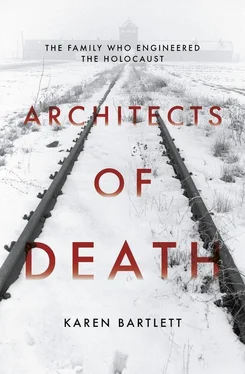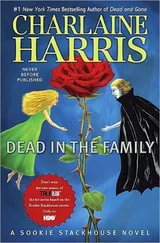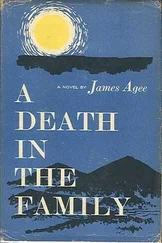As was common at Topf and Sons, the report contains long accounts of fairly trivial matters, undercut with an element of hysteria (the warning of ‘bankruptcy’).
In October 1938, Ernst Wolfgang Topf composed another lengthy file note about a dispute between himself and Gustav Braun over the replacement of a technician. Topf wants to promote someone internally, a man named Habel, but immediately complains that ‘from the very first moment, Herr Braun took against the idea (facial expression, etc.)’. When Topf explains why he thinks an internal promotion will be quicker than advertising in the newspaper, he states: ‘This, too, [was] met with icy rejection. When I asked why he was opposed to the idea, and whether he was familiar with Herr Habel’s work, Herr Braun just replied, “I want to find someone myself !”’ Topf agrees to drop the matter – but then writes a further page-long note in the file about why he finds it impossible to work with Braun. Topf writes:
I would like to add to this record that Herr Braun’s desire to put himself on a throne has been commented on many times before… Herr Braun still retains his character faults, and even displays them in his dealings with me. I must make it completely clear that I was as courteous as I could be. My behaviour was like that of a Pope blessing a supplicant. I didn’t make any demands at all – I just put the idea to him. I did, however, speak very clearly and concisely, and Herr Braun’s decision to send me away, as though I were some junior employee in my own company, just highlights his defective character.
Ernst Wolfgang Topf’s complaint about Braun’s lack of respect, and his belief that Braun was his brother Ludwig’s ally, runs throughout the file references to Gustav Braun. When Braun is given an air defence position in the company in October 1940, Topf records another highly excitable memo about Braun’s supposed high-handedness in dealing with his staff. Ernst Wolfgang fumes:
Herr Braun heartily dislikes order. He’s all for confusion and a totally subjective, impulsive style of management that is subject to neither order nor any kind of plan. Everything of an ordering or organising nature is wholly alien to him, for the simple reason that he can rule better in a state of disorder, disorganisation and chaos, and that a lot of things can be hushed up that way. When your operations management is based on shouting instructions without any order behind them, you can get away with almost anything and no one will ever be able to call you out. [128] Ernst Wolfgang Topf memo complaint against Braun 1940, Landesarchiv Thüringen - Hauptstaatsarchiv Weimar.
Between the time of this letter in 1940 and the end of the war, Topf and Sons was embroiled in producing the machinery of the Holocaust (as well as overseeing a large slave labour force, and manufacturing aircraft parts – in addition to their main business matters). Yet, as ever, the leadership of the company was consumed by petty rivalries and disputes. As the records show, the enmity between Ernst Wolfgang Topf and Gustav Braun worsened as the years passed.
On 30 January 1943 (while Topf and Sons are in the midst of constructing the crematorium at Birkenau), Ernst Wolfgang takes the time to write a two-page memo about Braun’s behaviour – this time in relation to the redundancy of someone called Röder. He sets the tone by marking the note ‘strictly confidential’ and then adds – ‘Theme: Only buffoons [Hanswürste] can co-exist as officers of the company alongside the operations director.’
The memo outlines a farewell conversation between Topf and Röder, but as expected with Ernst Wolfgang, it quickly descends into gossip. ‘He is very depressed about his redundancy, since he has enjoyed working here. He lets it be known that this redundancy is just the last in a series of attempts by Braun to “neutralise him” and make him surplus to requirements.’ Röder then explains to Ernst Wolfgang why he believes his poor performance and redundancy is in fact the fault of his manager, Gustav Braun. Topf writes:
In summary, Röder is convinced that he and every other production engineer could only survive in the operations division shadow-like, as a subpar employee. Braun simply refused to tolerate those around him; he always wanted to make all of the decisions and do everything himself, right down to the smallest detail, it just wasn’t possible for any equivalent specialist to exist alongside him. We have already previously experienced this. Our response to all this is that Braun’s nature and temperament – and also his character – have been well known to us for a long time.
On 2 March 1943 things appear to come to a head between Ernst Wolfgang Topf and Gustav Braun, when Topf openly confronts Braun – this time in a dispute over a new roof for the plumbing workshop yard.
FILE NOTE
By Herr E W Topf
For the Braun personnel file
2.3.1943
SECRET
The statement I made to Herr Braun today:
I told Herr Braun that open enmity towards him seemed to me to be the simpler and better course, and that he should assume me to be his declared enemy. This was the result of the last few weeks, in which he has indulged in his scheming to the point where I am just sick of it.
The events leading up to my declaration this lunchtime (to which I added, that he was a devil and his behaviour correspondingly devilish – something I totally stand by), were as follows…
Topf then details the nature of the disagreement, which is over the length of the new roof – and whether workers should be deployed to work on that, rather than building a new wall. Braun, states that he has already called off the work on the wall. ‘Braun responded to my astonishment as follows: “I called it off, because nothing’s allowed to be done without the approval of Herr Ludwig Topf!” At this point all four of us fell silent. I was quite naturally astonished at this audacious and tactless manner and attempt to put me down.’
The row continues, in detail, about whether or not to continue building work on the wall, before Ernst Wolfgang becomes almost incoherent with rage:
Torpedoing the discussion we’d had on Wednesday… has to lead to open enmity between Braun and me. All the more so, given that he succeeded in playing my brother off against me, since the latter agreed to Braun’s project. Since Braun clearly felt quite comfortable doing this, I’ve made this tactic easier for him in future. So now we’ll see where this open feud between us will lead.
Everyone knows that Braun is a chop-and-change kind of a person who never plans anything and who has wasted our company’s money over and over again these last five years with his impulsive actions. He has overturned everything from one day to the next: started this, abandoned that, never seen anything through. I have been on his case for months and that doesn’t suit him at all. He wants to see me off, and thinks he’ll find it easier dealing with the other one [Ludwig Topf], whom he can still impress with his fast and short-lived actions. At any rate, Braun reckons he hasn’t been rumbled yet. But he knows full well that I have seen through him and that I disapprove of his constant chopping and changing. This is why he has been avoiding me for weeks and hides behind my brother with evident malice. This shamelessness is intolerable.
What I have always known about this man – that he doesn’t know how to behave in any way other than dishonestly and maliciously, and that he’s an appalling schemer – has now been definitively proven. [129] E. W. Topf memo about Braun as the enemy and appalling schemer, Landesarchiv Thüringen - Hauptstaatsarchiv Weimar.
What this memo proves most clearly, perhaps, is not that Braun was an ‘appalling schemer’, but rather that both Topf brothers were afflicted with a strong strain of mental instability (especially bearing in mind that Ernst Wolfgang was the brother who did not commit suicide). Given such sentiments, however, one might wonder why Braun was not sacked. On the contrary, despite the mutual loathing that existed between Braun and Ernst Wolfgang, Braun’s position at Topf and Sons was firmly established, and, in 1943, he was awarded a large bonus of 800 RM. No matter how much Ernst Wolfgang fumed and vented, the reality was that workers as qualified as Braun were neither found nor replaced easily.
Читать дальше












